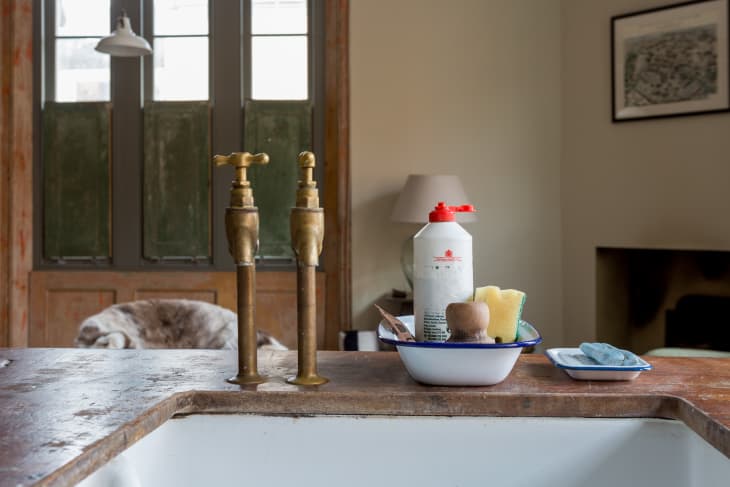Do Household Cleaning Products Actually Expire?

Do you know how old your furniture polish is? If you have to think back to a specific purchase and then do math, chances are it’s expired. And what about those other products you have to reach way back in the cupboard for — those products you only use a few times a year?
Yep, almost all cleaning products expire — but what does that mean exactly? Simply put, it means that they’ll break down and become less effective. You can still use them, you just might have to use twice as much, or put in a little more elbow grease to get them working. So if you’re a coupon clipper and have a back stock of laundry detergent to last 10 years, you might want to look into donating at least 9 years worth (or open up a laundromat!).
Laundry Detergent:
Starts to break down six months after opened. It’s good for 9-12 months if left unopened.
Laundry pods:
Most manufacturers say the pods do not expire, but have a shelf life of 15 months. Be sure to store in a dry, airtight container to keep the polyvinyl from dissolving.
Fabric softener:
Starts to break down and separate at around 6-12 months, unopened softener can last 2-3 years. Most softeners recommend you shake the bottle before using and discard any lumps you may find floating in the liquid.
Washing soda:
Does not expire when stored in a dry environment.
Dryer sheets:
Do not expire, but will lose their scent over time if left open. If you use them infrequently, store them in a zip top bag.
Bleach:
Has a 12-month shelf life beginning with the day of manufacture. It starts to break down after 6 months and becomes less effective, but will not increase in toxicity. Old bleach is fine to use, you just may need to increase the amount you use to maintain its effectiveness. For more information on reading and understanding date codes, check out this article.
OxiClean Powder:
As long as the powder remains dry, there is no expiration date.
Borax:
Does not expire, but the company recommends it be kept in a dry environment.
Bar Keepers Friend:
Does not expire if kept in a dry environment.
Castile soap:
Good up to 3 years.
Baking soda:
Good for 6-12 months after opening. If the box doesn’t have a printed manufacture date, try this to see if it’s still effective.
Vinegar:
Does not expire, does not break down. The Vinegar Institute says “vinegar’s shelf life is almost indefinite.”
Hydrogen Peroxide (3%):
Around 30-45 days at peak performance, up to six months total when stored in a cool, dark environment. This product quickly loses its effectiveness (even though it may still fizz) and becomes weaker soon after you break the seal. It’s best to purchase in small amounts. An unopened bottle is good for up to 3 years.
Furniture polish:
About 2 years.
Dishwashing soap:
Good for 12-18 months. Once you hit the 12-month mark you may start to see it break down and become less concentrated and watery.
Dishwasher detergent:
Lasts for 6-12 months, but can start to lose effectiveness around 6 months.
Multi-Surface Cleaners:
Up to 2 years, 1 year if they contain antibacterial ingredients.
Lysol:
Good for at least 2 years after opening. Beyond 2 years you can still use it, although it won’t be as potent or effective as it once was.
Disinfectant wipes:
If the wipes contain antibacterials, they’re good for 1 year. Other wipes are good for up to 2 years and start to lose their effectiveness after that.
Window Cleaner:
About 2 years.
Metal polish:
Depends on the brand, but usually lasts up to 3 years. If you start to notice excess water or lumps in the formula, toss it.